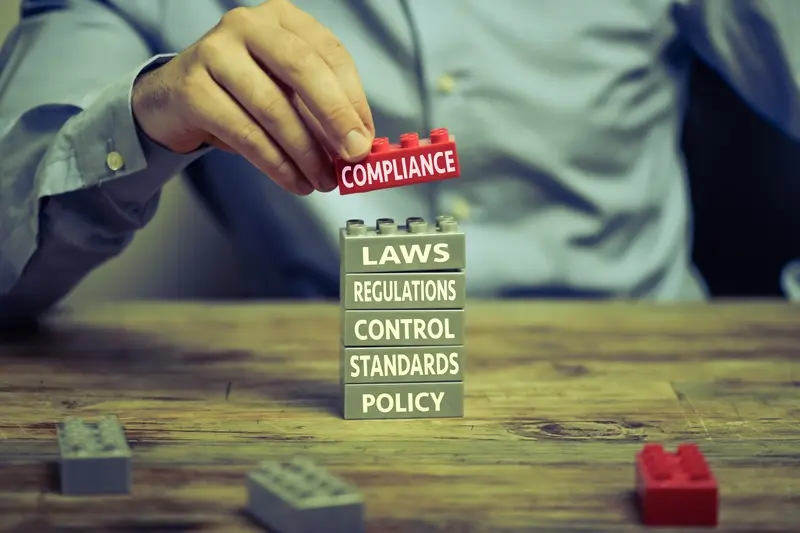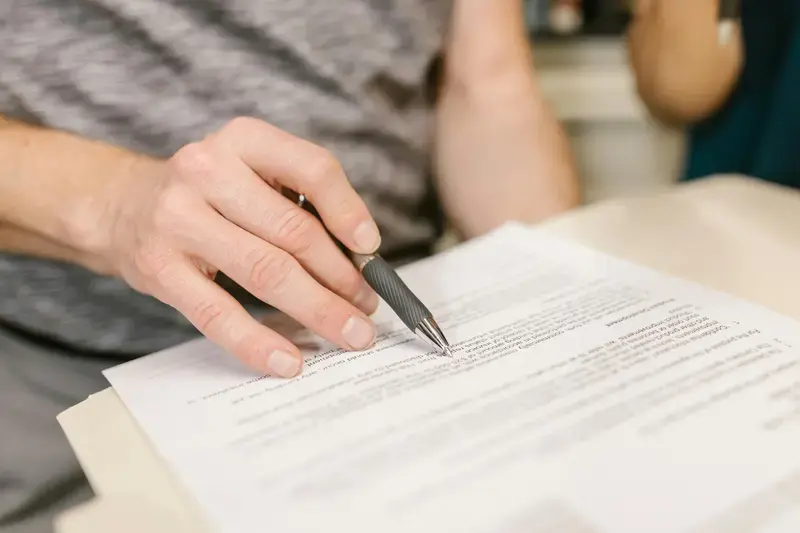What Does An App Development Agreement Look Like?
Creating an app is like embarking on an exciting adventure. You're optimistic, full of ideas, and itching to see that vision come to life. But, as a business, you know deep down there's more to it than just dreaming up a game-changer of an app—there's paperwork involved. Yup, we're talking about signing an app development agreement.
If you fail to prepare, you prepare to fail.Benjamin Franklin
This article will break down what an app development agreement should look like, making sure you're equipped with all the essentials. By the end of this read, you'll have a clear understanding of what to discuss with your app development partner, safeguarding your interests and setting the stage for a successful collaboration. So grab a cuppa, sit back, and let's get to it.
Why You Need an App Development Agreement
So, you're thinking about getting an app developed for your business, that's a fantastic idea! But before the excitement of seeing your ideas come to life gets the better of you, let's talk about something absolutely crucial: the app development agreement. Trust us, it's as important as the app itself.
You wouldn't build a house without agreeing some things with the builders, right? Similarly, an app without a clear agreement can lead to confusion, unanticipated costs, or worse—sleepless nights stressing over potential disputes. An app development agreement outlines the understanding between you and your developer, setting the foundation for a smooth-sailing project.
This agreement is your playbook. It defines the project's scope, budget, timeline, and even ownership rights. Without it, you could find yourself embroiled in a game of 'he said, she said' over who owns what or how the project will be run. And let's face it, navigating those potentially murky waters can be a headache!
By having a comprehensive agreement, you safeguard your business interests and establish a transparent line of communication with your developers. This way, everyone knows exactly what's expected—no surprises, just seamless app development. At Glance, we've seen how well-thought-out agreements keep things organised and on track. Most importantly, they ensure that your nifty new app becomes a success story.
Keeping Your Secrets Safe
In the world of business, confidentiality isn't just a buzzword—it's about protecting your valuable information from prying eyes. When you're developing an app, you'll inevitably share sensitive ideas, designs, and strategies with your development team. This is where a confidentiality clause in your app development agreement becomes your best mate. It ensures that all your private stuff stays, well, private.
- The developer is required to hold all confidential information in the strictest confidence.
- Confidential information cannot be shared with third parties without written permission from the client.
- The developer can only use confidential information for duties directly under the contract.
- Both the client and developer need to avoid sharing any third-party confidential information unless explicitly permitted.
- Protecting the main concept and idea of the platform is a crucial aspect of confidentiality.
The developer agrees to hold your confidential information in the strictest confidence—like it was their own. This includes any non-public information that you, the business, have flagged as confidential. It's vital to include a clear definition of what counts as confidential information. Remember, this isn't just limited to your revolutionary app ideas. It covers all proprietary information you disclose. So, whether it's a quirky design detail or your marketing plan, you're covered.
But let's remember, confidentiality isn't a one-way street. Your app development team may also share sensitive insights or technology that needs safeguarding. A well-structured confidentiality agreement protects both parties, creating a trusted space where innovation can flourish without fear of info leaks.
Key Elements of a Successful App Development Contract
When you're diving into a new app project, there's a lot on the line and getting the right contract in place is a bit like having a reliable sat-nav on a long road trip—it saves you from getting lost. There are some key elements your app development contract should include to guide you safely to your destination.
Budget and Payment Schedule: Money matters, and being clear about your budget from the start can save you from a world of stress. You don't want any surprise expenses cropping up halfway through development because you were busy budgeting for your office coffee machine instead!
Project Timeline: Timeframes are crucial. Your agreement should set realistic deadlines for each project phase. It’s handy for keeping everyone accountable and ensures progress isn't slower than a queue at the post office!
Responsibilities: Make sure the contract explains what the responsibilities are both for you and the developer. Clear roles ensure there's no confusion later on. After all, understanding who does what and when is key to a successful partnership.
By including these elements in your contract, you're paving the way for a smooth collaboration. It's all about securing your interests and ensuring a fulfilling partnership for both you and your development team. With these bases covered, you're set to focus on what truly matters: building that brilliant app that’s bursting with potential!
Protecting Your Intellectual Property
Intellectual Property (IP) is your business's secret sauce, and it's critical to ensure it's safeguarded. In the world of app development, protection of your IP can mean the difference between standing out from the competition or being surrounded by a sea of copycats.
First and foremost, establish a clear understanding of IP ownership from the outset. Are you retaining all IP rights, or is your developer granted specific rights to the work they've created? Ideally, the agreement should specify that the entire IP of the project belongs to you, the client. This clarity ensures that there are no awkward misunderstandings down the line.
Next, ensure your agreement includes clauses that prevent developers from reusing or disclosing your secrets. Your app's unique features, branding, or technology should remain your company's crown jewels, not be accidentally shared or, worse, repurposed for someone else's benefit.
But remember, protecting IP is not just about securing your assets; it's also about respecting the IP of others. You'll need to assure any material used does not infringe on anyone else's IP rights. This isn't just a good practice, it's a legal necessity.
Lastly, consider inserting a formal IP assignment template in your development agreement. This is a legally binding contract that helps smooth the transfer of IP rights and reassures potential investors of your product's security.
Understanding and addressing these aspects in your app development agreement can help fortify your business foundation, attract investors, and protect your cherished innovations. After all, nobody wants their magic recipe ending up in a rival's kitchen.
Dispute Resolution: Keeping It Friendly
Let's face it, disputes are not fun, but they do happen. So, how do we keep things friendly when the contract boat rocks a little too much? A solid dispute resolution clause can be your lifesaver. It outlines how disagreements will be tackled, whether they’re over deadlines, features, or even invoices.
One tried and tested method is arbitration, which is a bit like sitting down with an unbiased umpire who helps resolve your issues in a smooth and professional manner. This means you'll have a structured and fair process, potentially avoiding lengthy and costly court battles.
| Dispute Resolution Method | Description | Pros | Cons |
|---|---|---|---|
| Arbitration | An independent third party makes a binding decision. | Fast, private, binding decision. | Limited grounds for appeal, can be costly. |
| Mediation | A neutral party assists in reaching a mutual agreement. | Preserves relationships, non-binding. | No guarantee of resolution, may take time. |
| Negotiation | Parties involved communicate directly to resolve the dispute. | Low cost, parties control the outcome. | May not resolve if parties don't cooperate. |
To keep disputes from becoming a full-blown saga, it can also be helpful to include a clause requiring both parties to remain reasonable and willing to negotiate in good faith. Engaging in a spirit of compromise can be the key to maintaining a professional relationship that might otherwise be derailed by a minor conflict. Remember, resolving disputes amicably isn’t just about sticking to your guns; it’s about finding middle ground.
Ultimately, while we'd all rather focus on the exciting part of app development — you know, the bit where your app idea becomes a reality — having these resolutions in place is like having a safety net. It ensures that when bumps do occur along the metaphorical road, they don’t send the entire project veering off course.
Common Pitfalls and How to Avoid Them
Let's face it, business agreements can sometimes feel like wandering through a maze blindfolded. It’s easy to accidentally step into giant pitfalls if you’re not prepared. Here are some typical ones you should watch out for and how to elegantly sidestep them.
- Overlooking Intellectual Property Rights: This is a sticky one — you want to own the work you’ve paid for, right? Ensure your contract spells out who owns what and when. Protect your creations like a precious family recipe!
- Neglecting Confidentiality: Remember, loose lips sink ships. Ensure your developer understands the importance of confidentiality. An airtight NDA can help keep your innovative ideas under wraps until you’re ready for a grand unveiling.
- Absence of Dispute Resolution Mechanisms: Disagreements are as inevitable as Monday mornings. Clearly define how disputes will be handled, preferably through amicable methods like mediation or arbitration. No one wants to turn a misunderstanding into a courtroom drama!
By being aware of these common pitfalls, you’ll be well-prepared to craft an agreement that sets the foundation for a successful app development journey. Remember, every well-prepared agreement is a step closer to an app you're proud of!
Conclusion
Having a solid app development agreement is crucial for businesses aiming to dive into the world of mobile applications successfully. By understanding its components, you put yourself in a position to make informed decisions, protect your business interests, and foster a fruitful relationship with your developer.
Remember, an agreement isn’t just a piece of paper—rather, it's a powerhouse of protection and clarity. You'll feel more confident about the future of your app project when you know you've covered all bases. By anticipating potential hiccups and having strategies in place for disputes and confidentiality, you save yourself time, money, and a few grey hairs!
So, whether you're looking to launch a handy productivity app or the next big social media sensation, having a well-crafted app development agreement ensures you’re primed for success. If you need guidance, our team at Glance is always here to lend a helping hand.
Share this
Subscribe To Our Learning Centre
You May Also Like
These Related Guides

What Happens to Your IP When Developers Leave Your Project?

What Legal Issues Should You Consider With Remote App Development?



